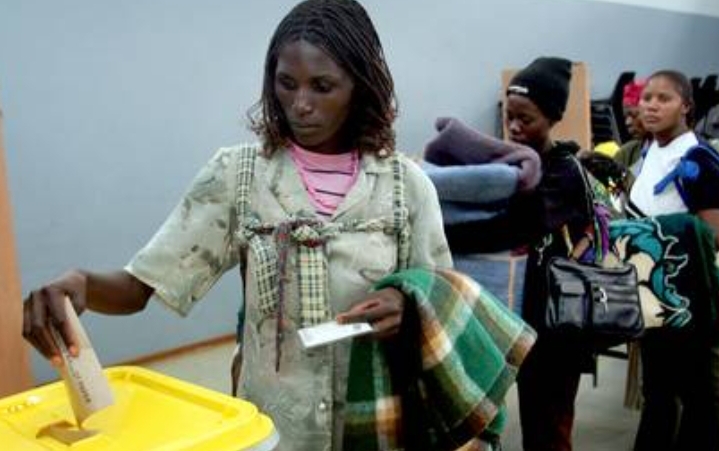Namibia’s Vice President Netumbo Nandi-Ndaitwah could become the country’s first female president in Wednesday’s election, where SWAPO faces challenges from younger voters and opposition parties amid shifting regional political dynamics.
Namibia Poised to Elect First Female President


Namibia’s Vice President Netumbo Nandi-Ndaitwah stands poised to make history as the country’s first female president if she secures victory in Wednesday's presidential election.
The stakes are high, with 1.4 million Namibians—nearly half the population—registered to vote in the elections. Fifteen political parties are vying for the presidency and seats in the National Assembly. Early polling results from special votes held for Namibia’s foreign missions, seamen, and security services, as announced by the Electoral Commission of Namibia, show Nandi-Ndaitwah and her party, the South West Africa People’s Organization (SWAPO), leading the race.
Since gaining independence from South Africa’s apartheid regime in 1990, SWAPO has been the dominant political force in Namibia. However, the party's stronghold has weakened. In 2019, SWAPO lost its two-thirds majority in the National Assembly for the first time since 1994. This setback is largely attributed to allegations of corruption and money laundering within the fishing industry, scandals that led to the arrest of two cabinet ministers and convictions of businessmen linked to them.
Political analyst Henning Melber, a professor at the University of Pretoria and the University of the Free State, cautioned that the 2019 elections should serve as a wake-up call for SWAPO. Despite being favoured to win, the party must appeal to younger voters who feel less connected to SWAPO's legacy of liberation struggles. Melber likened SWAPO’s challenges to those faced by other former liberation movements in Africa, such as South Africa's African National Congress.
“There’s no way back to regain such dominance. The erosion of legitimacy as a former liberation movement has advanced too far,” Melber said. He noted that younger voters, referred to as "born-frees" — those born after Namibia’s liberation — are less influenced by emotional ties to SWAPO and are more focused on governance and results.
Nandi-Ndaitwah, 72, has pledged to prioritize job creation and tackle youth unemployment, which currently stands at 20%. She has outlined plans to invest approximately 85 billion Namibian dollars ($4.7 billion) over the next five years to create more than 500,000 jobs. Critics, however, have dismissed this goal as unrealistic. Issues concerning women, such as reproductive rights, equal pay, and healthcare, are also expected to resonate strongly with voters.
If elected, Nandi-Ndaitwah would join a small group of women who have held presidential office in Africa, including Liberia’s Ellen Johnson Sirleaf, Malawi’s Joyce Banda, and the Central African Republic’s Catherine Samba-Panza. Political science lecturer Erika Thomas from the University of Namibia emphasized that should Nandi-Ndaitwah take office, she must demonstrate independence, transparency, and accountability. “She must push for policies that enhance women’s participation in politics and bring more women into leadership roles,” Thomas said.
SWAPO faces stiff competition from the Independent Patriots for Change, led by former dentist Panduleni Itula, and the Affirmative Repositioning party, led by university professor Job Amupanda. Both parties have been gaining traction among voters seeking alternatives to SWAPO's decades-long rule.
The election campaigns culminated in final rallies over the weekend, with all parties vying to sway undecided voters. This election comes amid a period of significant political change in southern Africa. Earlier this year, South Africa's ANC lost its 30-year parliamentary majority, while Botswana’s Democratic Party was unseated after 58 years in power. In Mauritius, the opposition achieved a landslide victory in elections considered a milestone for the country’s democracy. Meanwhile, Mozambique has been marred by protests following disputed election results in which the ruling Frelimo party was declared the winner, leading to at least 30 deaths.
The outcomes of Namibia’s elections are expected to have a lasting impact on the region’s political landscape, further underscoring the continent’s shifting dynamics.

 বাংলা
বাংলা  Spanish
Spanish  Arabic
Arabic  French
French  Chinese
Chinese 
